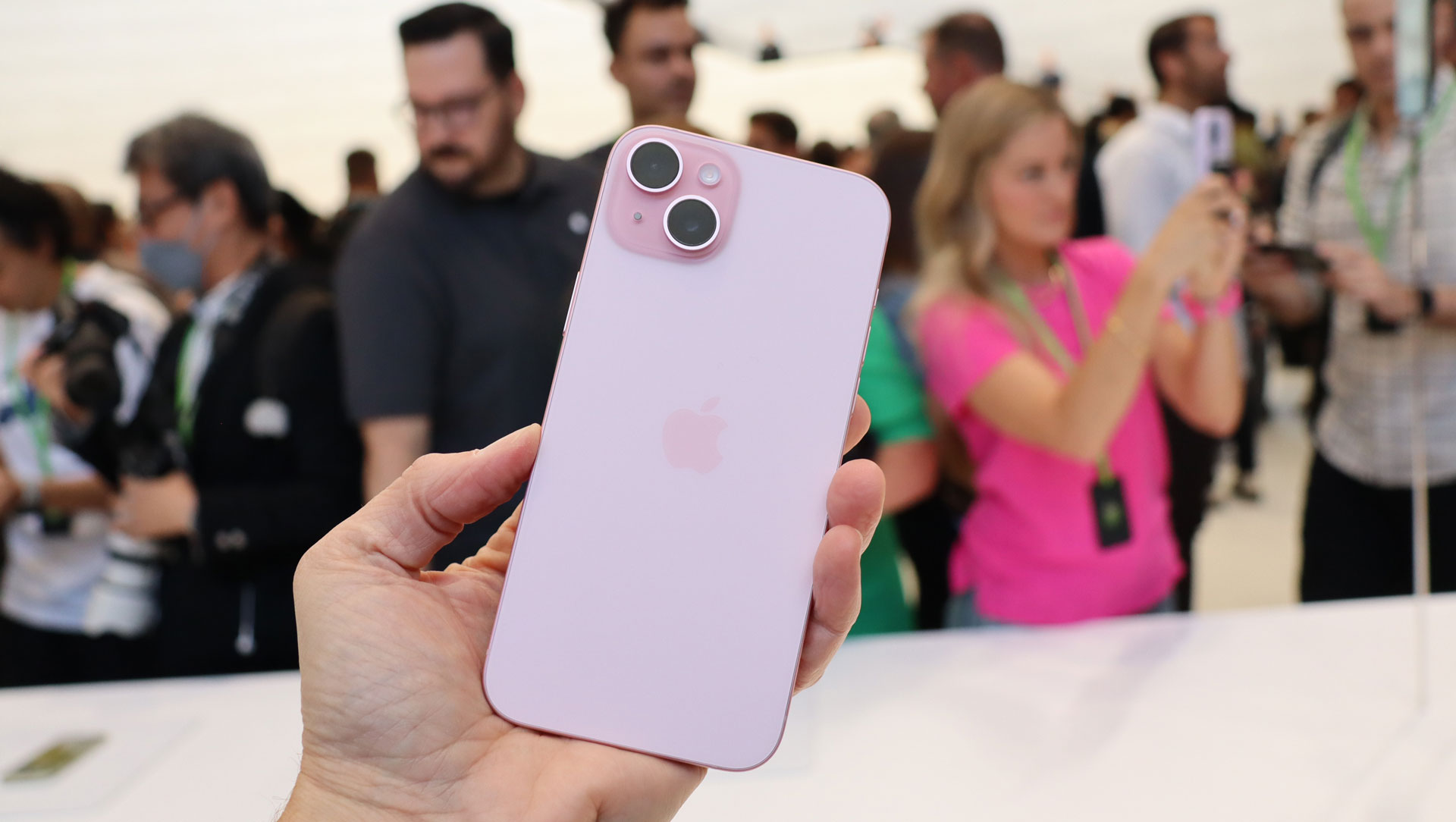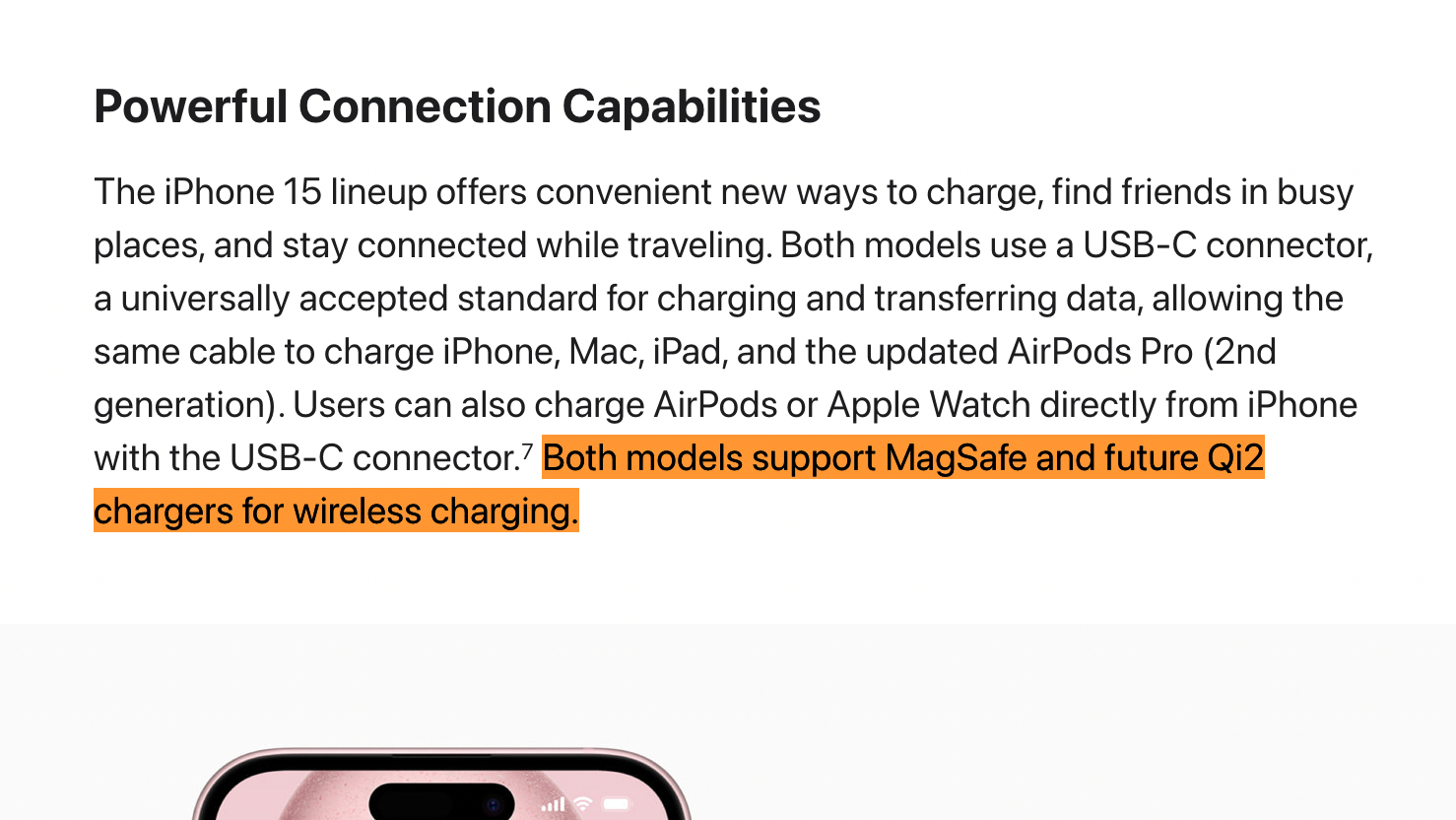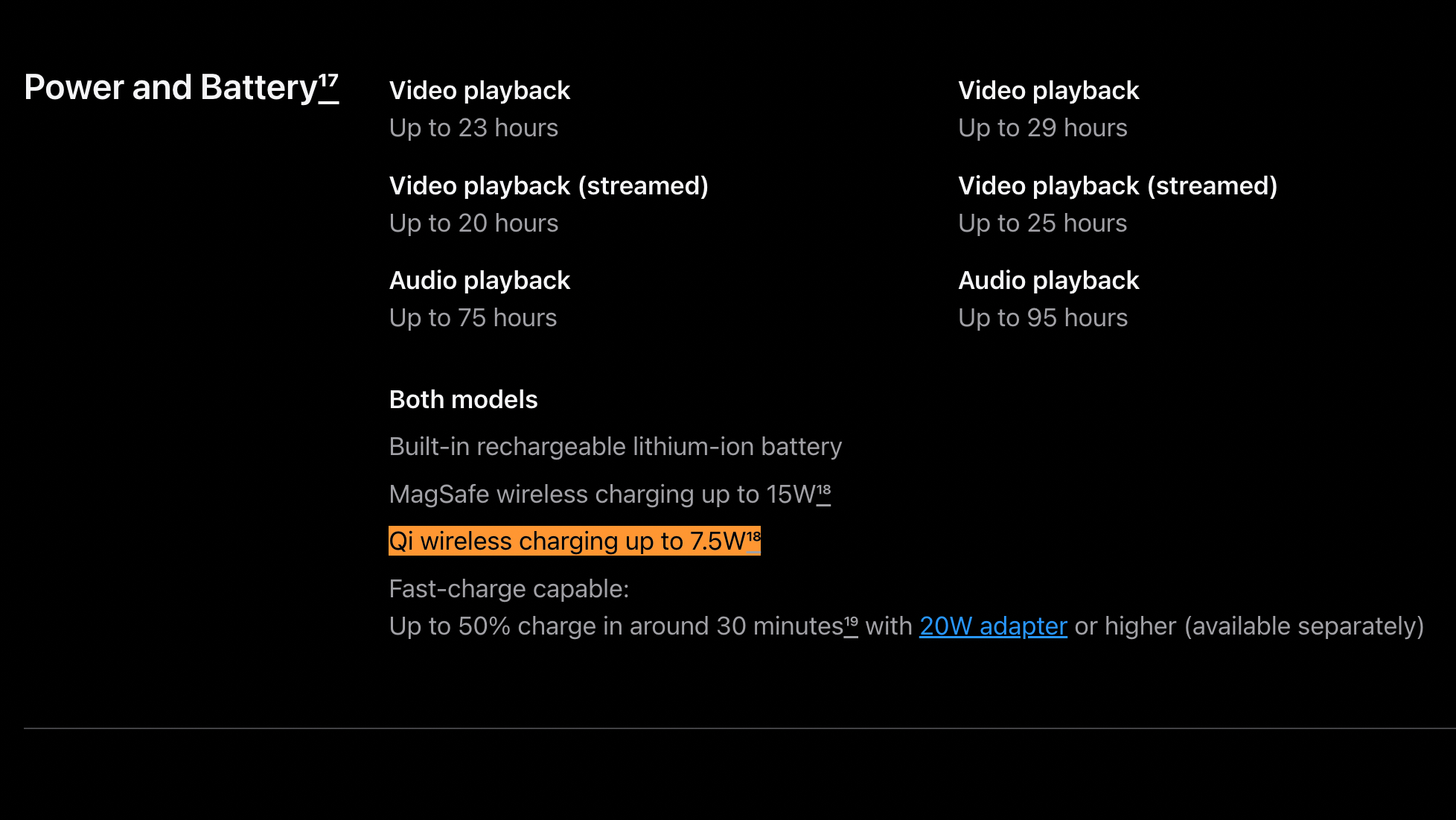
Sign up for breaking news, reviews, opinion, top tech deals, and more.
You are now subscribed
Your newsletter sign-up was successful
Apple’s newly revealed iPhone 15 models are packed with hard-to-miss upgrades, but we now know that all four iPhone 15 devices are also equipped with a lesser-publicized charging feature that could prove significant in the not-too-distant future.
In its official announcements for the iPhone 15 and iPhone 15 Pro, Apple confirms that both models support the new Qi2 standard for wireless charging. Essentially, Qi2 takes the built-in magnets feature of Apple’s MagSafe technology and opens it up third-party manufacturers. This could mean that all Qi2-certified wireless chargers will soon be capable of charging Apple’s latest iPhones at 15W – something that only MagSafe chargers have been able to do in the past.
Suffice to say, this is good news for prospective iPhone 15 owners. Non-Apple accessories are typically cheaper than those produced by the Cupertino giant, but Apple currently limits most third-party wireless chargers to 7.5W charging. Qi2 looks set to change that.
The problem, however, is that no Qi2-certified wireless chargers exist just yet. What’s more, despite Apple confirming that its iPhone 15 models support “future Qi2 chargers for wireless charging” in those aforementioned announcements, the official tech specs page for the iPhone 15 Pro says that the device (and presumably all other iPhone 15 devices) supports “MagSafe wireless charging up to 15W” and “Qi wireless charging up to 7.5W.”


There’s that pesky 7.5W figure again. Does this mean Apple might continue to intentionally limit non-Apple, 15W-capable wireless chargers to 7.5W, in a bid to maintain healthy MagSafe sales? Or will the company update the official iPhone 15 tech specs page to read “Qi2 wireless charging up to 15W” once Qi2 chargers have been officially certified and are readily available?
The honest answer is: we don’t know. Apple certainly has form when it comes to ring-fencing its own technology. But we think it’s more likely that the company makes 15W wireless charging available across the board in the near future.
Indeed, a spokesperson for case manufacturer Belkin recently told The Verge: “We have not yet tested the iPhone 15 lineup on [our upcoming Qi2 charging] product but we expect it should charge iPhone 15 devices at up to 15W.” Prior to the iPhone 15 launch, Belkin said that its Qi2 chargers “will be able to charge MagSafe iPhones at 15W.”
Sign up for breaking news, reviews, opinion, top tech deals, and more.
It’s also worth noting that, unlike with the switch from Lightning to USB-C on the iPhone 15, there was no regulatory pressure for Apple to work with the Wireless Power Consortium (WPC) on the Qi2 standard. It figures, then, that the company’s decision to do so lies in a desire to make optimal wireless charging more readily available to iPhone owners.
Wishful thinking? Perhaps. But being able to charge an iPhone 15 at 15W on a cheaper, non-Apple wireless charger would certainly boost the appeal of Apple’s latest smartphone for anyone on the fence about buying one.
More iPhone 15 stories
- iPhone 15: everything we know
- iPhone 15 Plus: everything we know
- iPhone 15 Pro: everything we know
- iPhone 15 Pro Max: everything we know
- iPhone 15 price: should you go for iPhone 14 instead?
- iPhone 15 deals: the best offers to look out for
- iPhone 15 USB-C: everything you need to know
- iPhone 15 Pro Max camera: 7 big upgrades
- 15 things we learned at Apple's September 2023 event

Axel is TechRadar's Phones Editor, reporting on everything from the latest Apple developments to newest AI breakthroughs as part of the site's Mobile Computing vertical. Having previously written for publications including Esquire and FourFourTwo, Axel is well-versed in the applications of technology beyond the desktop, and his coverage extends from general reporting and analysis to in-depth interviews and opinion.
Axel studied for a degree in English Literature at the University of Warwick before joining TechRadar in 2020, where he earned an NCTJ qualification as part of the company’s inaugural digital training scheme.